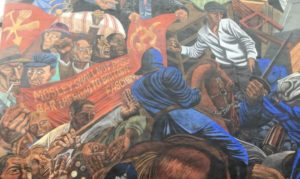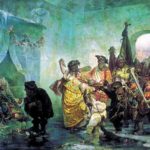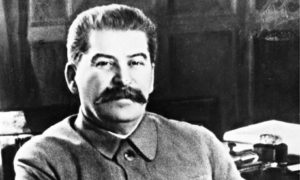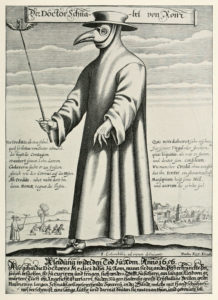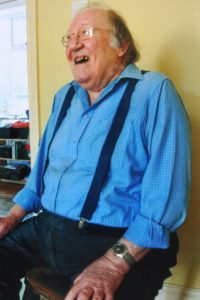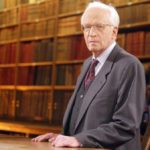 If you click here you will get to Tony Barber’s obituary for Ernst Nolte. I have included an extract below. Read the article and see if you agree with him.
If you click here you will get to Tony Barber’s obituary for Ernst Nolte. I have included an extract below. Read the article and see if you agree with him.
“On Friday June 6 1986 the Frankfurter Allgemeine Zeitung, a West German newspaper, devoted three columns of its prestigious feuilleton , or culture section, to a provocative essay under the headline: “The past that will not pass away.” Written by Ernst Nolte, a conservative professor at the Free University of Berlin with a taste for breaking taboos, the article contended that Nazism and the mass murder of European Jews should be understood not as historical episodes with uniquely German roots but as a reaction to the 1917 Russian Revolution and the murderous excesses of Soviet communism.
The article by Nolte, who has died aged 93, sparked arguably the most blistering intellectual controversy in West Germany’s 1949-1990 existence. Known as the Historikerstreit (historians’ dispute), this debate addressed supremely sensitive questions such as the degree to which Germans bore collective guilt or responsibility for the Nazis’ atrocities, and whether the Nazi legacy was to burden the national identity for ever.”
Mr Kydd.
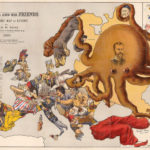 Many of you will know of my passion for historical maps. If you click here you will to an article from Fred Maynard in the 1843 magazine advertising a new exhibition at the Map House of London. This focuses on political maps from the First and Second World War. As Maynard puts it, “with their skillful mix of symbolism and information, maps were effective propaganda tools.”
Many of you will know of my passion for historical maps. If you click here you will to an article from Fred Maynard in the 1843 magazine advertising a new exhibition at the Map House of London. This focuses on political maps from the First and Second World War. As Maynard puts it, “with their skillful mix of symbolism and information, maps were effective propaganda tools.”
